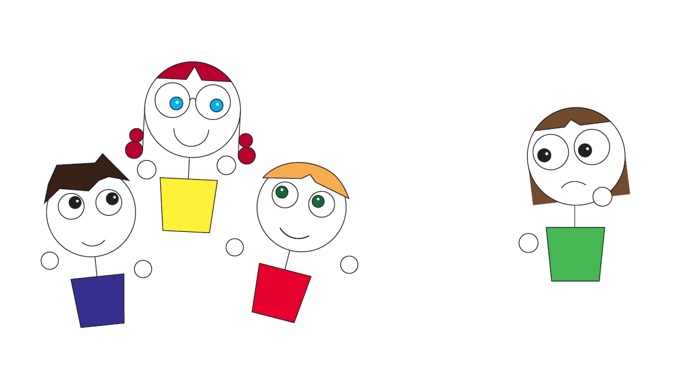Growing up with Specific Language Impairment can impact a child’s development in a number of ways. Professor Mabel Rice of the University of Kansas discusses the issues
Children’s language acquisition emerges in a thicket of related abilities that can obscure the underlying central significance of language as an influence on other dimensions of development. Further, as children grow into adolescence and adulthood this close relationship can be misunderstood. This issue impacts children with Specific Language Impairment (SLI)– a language disorder that delays the mastery of language skills in children who have no hearing loss or other developmental delays (affecting 7-10% of children) https://www.nidcd.nih.gov/health/specific-language-impairment. This condition usually persistents into adulthood, although affected children and adults are not likely to be identified for services to help with their language impairment 1.
The thicket of related outcomes includes:
- A high risk for reading impairments
- Lower than expected academic achievement2
- Difficulties in establishing peer relationships
- A heightened risk for peer victimization as a student3
- Increased risk for being identified as having an Attention Deficit Disorder (ADHD) because assessments for ADHD often include items to test language abilities (such as “does not listen to what is being said to him/her”4)
- Increased risk for being identified as having an “Auditory Processing Disorder” (APD) because assessments confound language and hearing ability
- Increased risk for ending education at the high school level2
- Increased risk for social anxiety in early childhood5
- For females, almost three times the risk for sexual assault in adulthood6,7
The risk of the thicket surrounding language acquisition is that, without realizing it, people can see the individual branches of the thicket and assume that is the nature of the problem and miss the role of language at the core of the thicket. Language ability is central to reading ability, school acheivement, peer relationships, negotiation of disputes, social confidence, self esteem, the ways in which we express humor, and strategies to escape dangerous situations. People with SLI are aware that although they wish to be popular with their peers and to do well in school, this is not their experience. In much the same way as is true for children who do not speak the language of their peers, persons with SLI can appear shy because they have limited language abilities, but this is misleading8. In other social circumstances their apparent shyness is not evident as they communicate with family and friends.
It is vitally important to increase the identification of persons with SLI, to help them cope with the misinterpretations of their language limitations and to provide them with needed help with language and related skills such as reading and peer acceptance. Their opportunities in the work place as adults, and other aspects of life outcomes, depend on it.

Mabel L. Rice
University of Kansas
References
- Rice ML. Specific Language Impairment in Children. https://wwwopenaccessgovernmentorg/specific-language-impairment-in-chi 2017.
- Tomblin JB. Education and Psychosocial Outcomes of Language Impairment in Kindergarten
- In: Understanding Individual Differences in Language Development Across the School Years. New York: Psychology Press; 2014:166-203.
- Redmond SM. Peer victimization among students with specific language impairment, attention-deficit/hyperactivity disorder, and typical development. Language, Speech, and Hearing Services in Schools. 2011;42:520-535.
- Redmond SM, Ash AC, Hogan TP. Consequences of co-occurring attention-deficit/hyperactivity disorder on children’s language impairments. Language, Speech, and Hearing Services in Schools. 2015;46:68-80.
- Brownlie EB, Bao L, Beitchman J. Childhood language disorder and social anxiety in early adulthood J Abnorm Child Psychol. 2016;44:1061-1070.
- Brownlie EB, Jabbar A, Beitchman JH, Vida R, Atkinson L. Language impairment and sexual assault of girls and women: Findings from a community sample. J Abnorm Child Psychol. 2007;35(4):618-626.
- Brownlie EB, Graham E, Bao L, Koyama E, Beitchman JH. Language disorder and retrospectively reported sexual abuse of girls: severity and disclosure. Journal of Child Psychology and Psychiatry. 2017.
- Ash AC, Rice ML, Redmond SM. Effect of Language Context on Ratings of Shy and Unsociable Behaviors in English Language Learner Children. Language, Speech, and Hearing Services in Schools. 2014;45:52-66.








